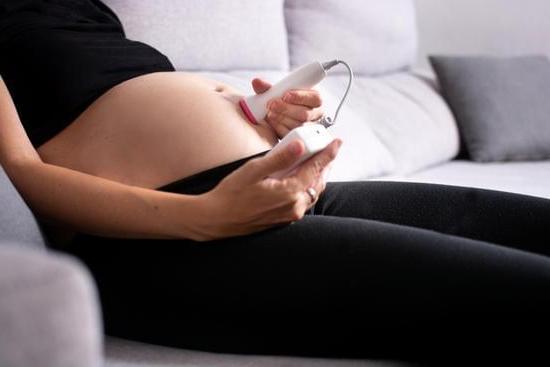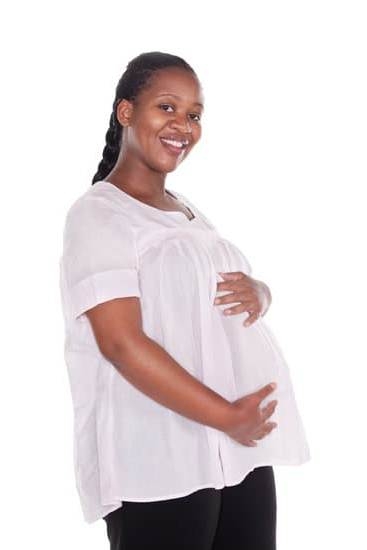When can pregnancy be detected? Pregnancy detection is crucial for individuals who suspect they may be pregnant. Knowing when pregnancy can be detected helps individuals take necessary steps and plan for their future accordingly. Detecting pregnancy involves identifying the presence of a fetus in the womb, typically through various tests and symptoms.
Understanding the science behind pregnancy detection is essential. Different methods are used to detect pregnancy, including home pregnancy tests and blood tests. These methods work by detecting hormones or other markers present in the body when pregnant. Being aware of how these tests function can help individuals accurately confirm whether they are pregnant or not.
Early signs of pregnancy play a significant role in detecting pregnancy. Symptoms such as missed periods, nausea, and fatigue can indicate early stages of pregnancy. Recognizing these signs can prompt individuals to take a pregnancy test to confirm their suspicions. It is important to be aware of these symptoms as they can vary from person to person.
The Science Behind Pregnancy Detection
Pregnancy detection involves identifying the presence of a developing embryo or fetus in a woman’s uterus. It is crucial to determine when pregnancy can be detected as it allows individuals to make informed decisions about their reproductive health. Knowing the signs and methods of pregnancy detection can help individuals take appropriate actions, whether they are hopeful for a positive result or looking to avoid an unwanted pregnancy.
There are various methods used for pregnancy detection, with the most common being home pregnancy tests and blood tests. Home pregnancy tests work by detecting the hormone human chorionic gonadotropin (hCG) in urine samples. This hormone is produced by the placenta shortly after implantation, typically occurring 6-12 days after fertilization.
Blood tests, on the other hand, directly measure hCG levels in the blood, providing more accurate results compared to home tests. Blood tests can detect lower levels of hCG earlier, making them a preferred choice for early detection in some cases.
When considering how soon pregnancy can be detected through these methods, it is essential to understand that individual factors such as ovulation timing and hCG levels can influence the results. While some home pregnancy tests claim to provide accurate results as soon as a few days before a missed period, it is generally recommended to wait until after a missed period for more reliable results.
Similarly, blood tests conducted by healthcare professionals offer greater accuracy within days of conception but may also require waiting a few days after a missed period for more definitive results.
Early Signs of Pregnancy
Pregnancy detection is a crucial part of family planning and maternal health care. Understanding the early signs of pregnancy can help individuals take appropriate action for their health and well-being. Recognizing these signs can also lead to early confirmation of pregnancy, allowing expecting parents to begin prenatal care as soon as possible.
Common Early Signs of Pregnancy
Some common early signs of pregnancy include missed periods, fatigue, nausea or morning sickness, breast tenderness, frequent urination, and mood swings. These symptoms can vary from person to person and may not always indicate pregnancy. However, recognizing these signs can prompt individuals to take a home pregnancy test or visit a healthcare provider for further confirmation.
Importance of Being Aware of Early Signs
Being aware of the early signs of pregnancy is essential for planning and preparing for the arrival of a new baby. It allows pregnant individuals to make lifestyle adjustments, such as quitting smoking or taking prenatal vitamins, that are crucial for fetal development. Additionally, understanding these signs can help individuals seek medical attention promptly if needed, ensuring both maternal and fetal health are prioritized throughout the pregnancy journey.
When Can Pregnancy Be Detected Through Home Pregnancy Tests
When it comes to detecting pregnancy, home pregnancy tests are often the go-to option for many women. These tests are easily accessible, affordable, and can be done in the comfort of one’s own home. But when exactly can a pregnancy be detected through these tests? Home pregnancy tests work by detecting the presence of human chorionic gonadotropin (hCG) in urine, which is a hormone produced during pregnancy.
Explanation of How Home Pregnancy Tests Work
Home pregnancy tests typically involve placing a few drops of urine on a designated area of the test strip or device. The test then detects hCG levels in the urine sample. If hCG is present at a certain level, the test will display a positive result, indicating pregnancy. It is important to follow the instructions provided with the test kit carefully to ensure accurate results.
The Accuracy of Home Pregnancy Tests
Home pregnancy tests are considered quite accurate when used correctly. However, factors such as using an expired test kit, testing too early after conception, or not following instructions properly can affect the accuracy of the results. It is recommended to confirm a positive result with a healthcare provider through further testing.
When Is the Best Time to Take a Home Pregnancy Test
In general, it is best to wait until you have missed your period before taking a home pregnancy test for more accurate results. Testing too early may result in a false negative due to low levels of hCG in the body at that time. Some newer tests claim they can detect pregnancy even before a missed period, but waiting until after your expected period date will give you more reliable results.
When Can Pregnancy Be Detected Through Blood Tests
Blood tests are one of the most reliable methods of detecting pregnancy. These tests work by measuring the levels of human chorionic gonadotropin (hCG) in a woman’s blood. HCG is a hormone produced by the placenta shortly after a fertilized egg attaches to the uterine lining. Blood tests can detect lower levels of hCG compared to urine-based home pregnancy tests, making them more sensitive and accurate in early pregnancy detection.
There are two types of blood tests that can be used to detect pregnancy: quantitative and qualitative. A quantitative blood test measures the exact amount of hCG in the blood, providing an accurate assessment of how far along the pregnancy is. On the other hand, a qualitative blood test simply checks for the presence of hCG in the blood, confirming or ruling out pregnancy. Both types of blood tests are usually conducted in a medical setting by healthcare professionals.
The accuracy of blood tests for detecting pregnancy is very high, with sensitivity levels as low as 5 mIU/mL. This means that these tests can detect pregnancy very early on, even before a missed period.
Blood tests are especially useful for women who may have irregular periods or those who want to confirm their pregnancy before making an appointment with their healthcare provider. It is recommended to consult with a healthcare professional to determine when it is best to take a blood test for pregnancy detection based on individual circumstances and symptoms.
Factors Affecting Pregnancy Detection
When it comes to detecting pregnancy, there are various factors that can influence the accuracy of the results. One important factor is the timing of when the test is taken. For example, home pregnancy tests may not always be able to detect pregnancy in the very early stages.
It is recommended to wait until you have missed your period to ensure more accurate results. Taking a test too early may result in a false negative, leading individuals to believe they are not pregnant when they actually are.
Another factor that can affect pregnancy detection is the sensitivity of the test being used. Some home pregnancy tests are more sensitive than others and are able to detect lower levels of hCG (human chorionic gonadotropin), which is the hormone produced during pregnancy. Choosing a high-quality and reliable home pregnancy test can increase the likelihood of an accurate result.
Additionally, certain medications or medical conditions can also impact the accuracy of pregnancy detection. Medications that contain hCG or conditions such as polycystic ovary syndrome (PCOS) can interfere with test results. It is important to consult with a healthcare provider if you have concerns about how these factors may affect your ability to detect pregnancy accurately through home or blood tests. By understanding these factors, individuals can make informed decisions about when and how to confirm their pregnancy.
Importance of Confirming Pregnancy Early
Pregnancy is a life-changing event for many women, and confirmation of pregnancy is crucial for proper prenatal care. Detecting pregnancy early on allows expectant mothers to make important decisions regarding their health and the well-being of their baby. One of the earliest signs of pregnancy can be a missed period, but there are other signs that may indicate a possible pregnancy. These signs include fatigue, nausea, breast tenderness, frequent urination, and mood swings.
It is essential to confirm pregnancy as soon as possible through various detection methods available. Home pregnancy tests are commonly used and can detect pregnancy by analyzing urine for the presence of human chorionic gonadotropin (hCG), a hormone produced during pregnancy. These tests can provide accurate results when used correctly, with most being able to detect hCG levels as early as 7-10 days after conception.
Apart from home pregnancy tests, blood tests conducted by healthcare professionals can also accurately detect pregnancy early on. A blood test measures the quantity of hCG in the bloodstream and can detect lower levels of this hormone compared to urine tests. Blood tests have higher sensitivity and specificity than home pregnancy tests due to their ability to detect hCG levels sooner after conception, usually within 6-8 days post-ovulation.
| Early Pregnancy Detection Method | Time Frame for Detection |
|---|---|
| Home Pregnancy Test | 7-10 days after conception |
| Blood Test | 6-8 days after ovulation |
Conclusion
In conclusion, knowing when pregnancy can be detected is crucial for individuals who may be trying to conceive or are sexually active and want to stay informed about their reproductive health. Pregnancy detection can be done through various methods such as home pregnancy tests and blood tests, each with different levels of accuracy and effectiveness. Early signs of pregnancy, such as missed periods, nausea, and breast tenderness, can also serve as indicators that conception has occurred.
Home pregnancy tests are usually able to detect pregnancy around one week after a missed period, while blood tests can detect pregnancy even earlier, around 6-8 days after ovulation. Factors such as the timing of testing, the sensitivity of the test used, and individual variations in hormone levels can all influence the accuracy of pregnancy detection. Understanding these factors is essential to ensure reliable results.
Confirming pregnancy early not only provides peace of mind but also allows individuals to start prenatal care sooner and make necessary lifestyle adjustments for a healthy pregnancy. Early detection also enables healthcare providers to monitor the progress of the pregnancy more closely and address any potential issues promptly. Overall, being aware of when pregnancy can be detected and acting upon it can lead to positive outcomes for both mother and baby.
Frequently Asked Questions
How Soon Will a Pregnancy Test Read Positive?
A pregnancy test can typically read positive about 10-14 days after conception, although some tests claim to be able to detect pregnancy earlier. It is recommended to wait until a missed period for more accurate results.
What’s the Earliest Pregnancy Can Be Detected?
The earliest pregnancy can be detected is usually around 7-10 days after conception through blood tests that measure hCG levels. However, at-home urine tests may not always detect pregnancy until closer to when a period is expected.
How Early Can You Tell if You Are Pregnant?
Early signs of pregnancy can start as soon as one week after conception, with symptoms like fatigue, nausea, breast tenderness, and increased urination. However, these signs can vary between women and not everyone experiences them in the same way or at the same time.

Welcome to my fertility blog. This is a space where I will be sharing my experiences as I navigate through the world of fertility treatments, as well as provide information and resources about fertility and pregnancy.





